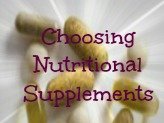Vitamin A Food Sources, Deficiency and Overdose
Vitamin A, also called retinol, has many functions in the body. It plays a great role in helping the eyes adjust to light changes.
Vitamin-A is essential for bone growth, tooth development, reproduction, cell division, gene expression and normal functioning of the immune system.
The skin, eyes and mucous membranes of the mouth, nose, throat and lungs depend on this vitamin to remain moist.
Retinol helps to form skin and mucous membranes and keep them healthy, thus increasing resistance to infections; essential for night vision; promotes bones and tooth development.
Beta-carotene (a plant substance that the body converts to vitamin-A) is an antioxidant and may protect against cancer.
Physicians sometimes recommend that young infants take vitamin supplements that contains vitamin-A. However, toddlers and children need protection from too much of this nutrient due to their smaller body size.
Typical natural foods eaten in large amounts by toddlers and children usually contain sufficient amounts.
Strengthening Your Eyesight
This vitamin is good for the eyes in 3 major ways:
- Helps prevent night blindness
- Prevents cataracts
- Helps to preserve eyesight
The Best Sources of Vitamin A
The best way to ensure your body gets enough of this vitamin is to eat as many food varieties as possible. Foods of animal origin like dairy products, fish and liver are some of the best sources.
Some foods of plant origin contain beta-carotene. Beta-carotene comes from fruits and vegetables. Carrots, pumpkin, winter squash, dark green leafy vegetables and apricots are rich sources of beta-carotene.
Supplements can complement our diets when we do not get enough from our foods. Healthy individuals who eat a balanced diet rarely need supplements. Eating a variety of foods that contain vitamin-A (and carotene) is the best way to get an adequate amount.
Effects
of Vitamin A Deficiency
Vitamin A deficiency is recognized as a public health problem in over 100 countries in the world. This deficiency is responsible for the global annual toll of 0.5 million new cases of preventable blindness.
The cumulative deficiency of retinal deficiency on the epithelia of the surface of the eye explain the progressive signs of xerophthalmia- the term used to describe blindness of retinol deficiency. Night blindness, the inability to see in dim light, is an early sign of deficiency.
A retinol deficiency is also associated with a reduction in the activity of white blood cell that kills tumor and virus-infected cells. A mild infection such as measles often triggers the development of xerophthalmia in children whose intake of this vitamin is marginal.
Other signs of possible deficiency include decreased resistance to infections, faulty tooth development, and slower bone growth.
A child with a deficiency of this
vitamin faces a 25 per cent greater risk of dying from common ailments, such as
measles, malaria or diarrhoea.
Supplementation can reduce your risk of a deficiency and related problems. Administering two retinol doses a year to children under five prevents this deficiency.
The
Effects of Excess Dose
Vitamin A is both acutely and chronically toxic. Acutely, large doses of this vitamin (over 300mg in single dose to adults) can cause nausea, vomiting and headache, which disappear within a few days. After a very large dose there may also be itching and exfoliation of the skin, and extremely high doses can prove fatal.
Prolonged and regular intake of more than 7500-9000ug per day by adults causes signs and symptoms of toxicity affecting the skin, central nervous system, liver and bones.
Vitamin Related Articles
What is the functions of vitamin K
Return from Vitamin A to Vitamin Supplements
Return to Nutritional Supplements Home








New! Comments
Have your say about what you just read! Leave me a comment in the box below.